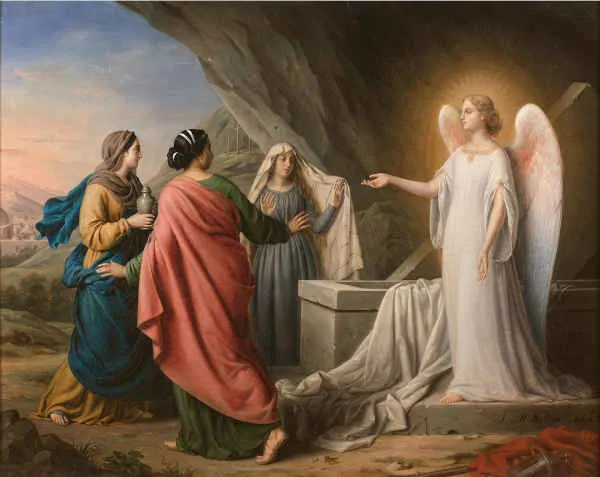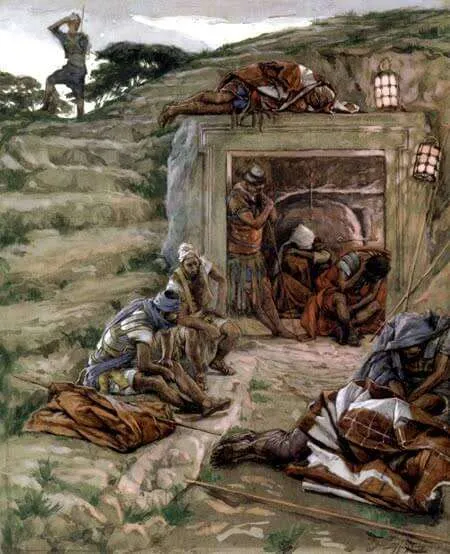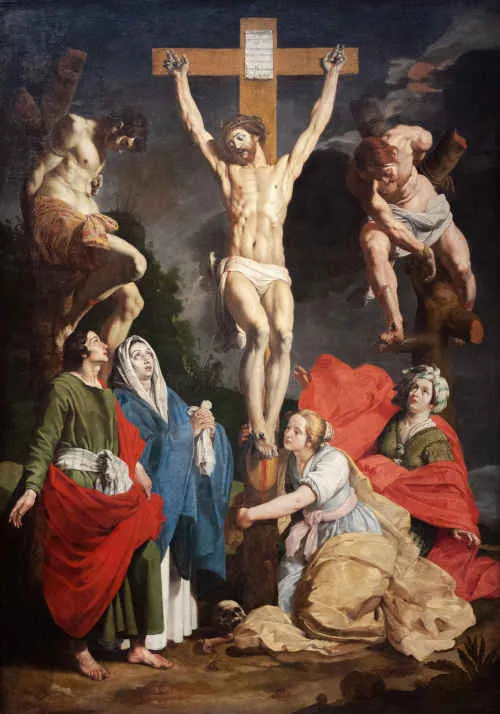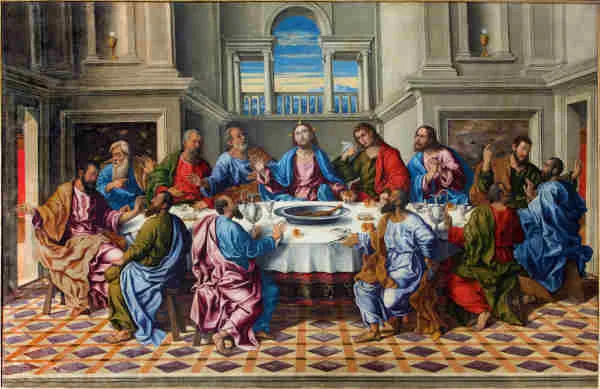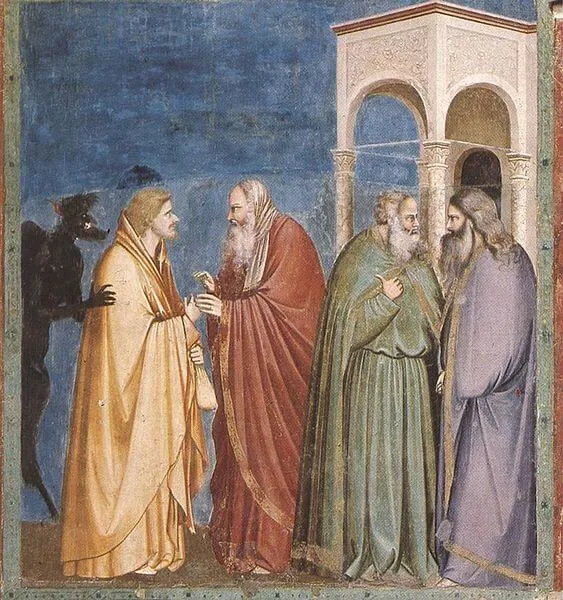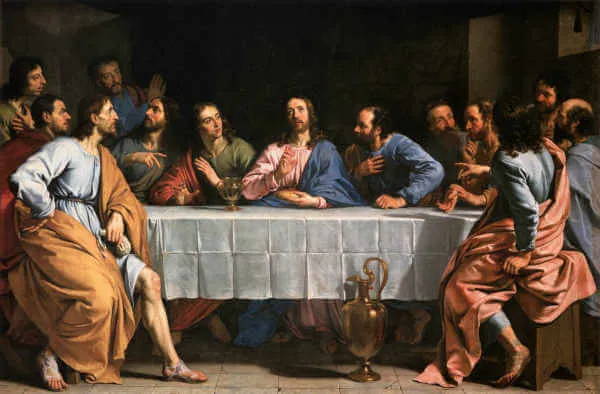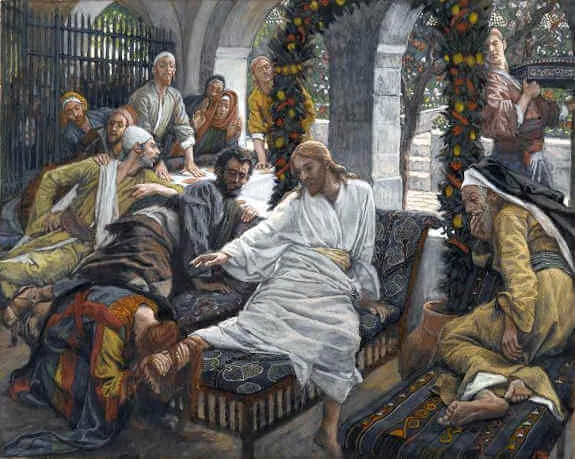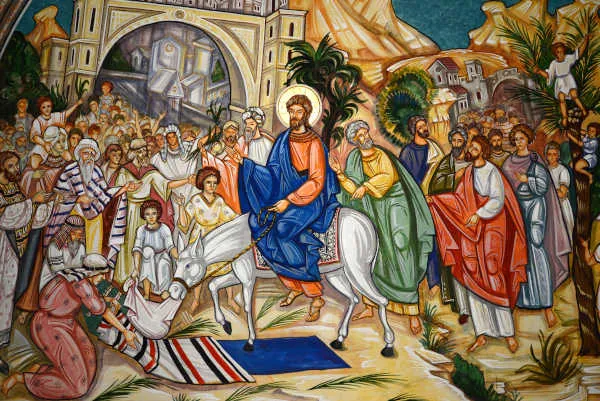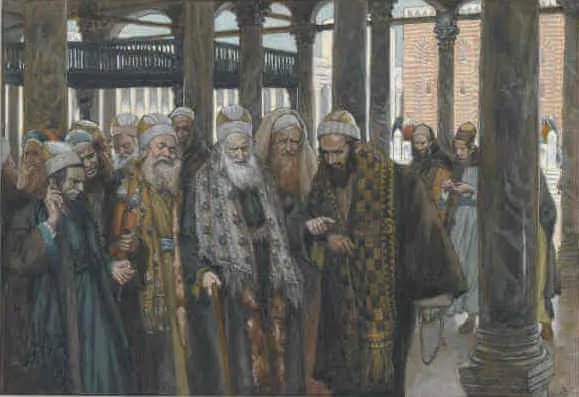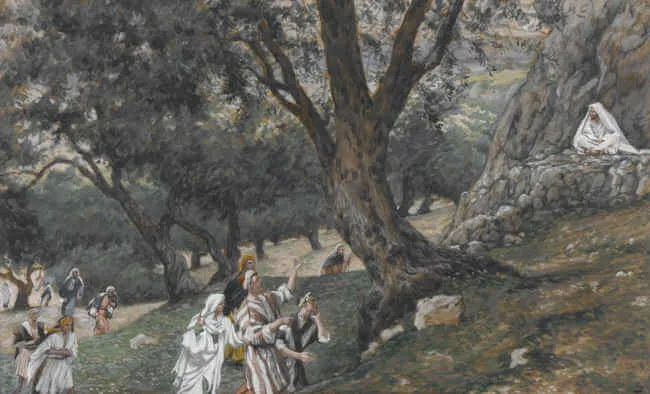Matthew 28:5-7
Glory Beyond Imagination
“Do not be afraid! I know that you are seeking Jesus the crucified. He is not here, for he has been raised just as he said. Come and see the place where he lay. Then go quickly and tell his disciples, ‘He has been raised from the dead, and he is going before you to Galilee; there you will see him.’ Behold, I have told you.”
Reflection:
The Lord has truly risen! Alleluia! Sin and death have been destroyed, and new life has been offered to all who cling to the Savior in faith. What a glorious day we celebrate today!
Matthew’s Gospel, quoted above, is read at the Easter Vigil Mass. Prior to the reading of this Gospel are seven Old Testament readings, each followed by a psalm, as well as a New Testament reading, another psalm and the Gospel. There are seventeen readings in all at the Easter Vigil! For that reason, the Easter Vigil is called “the mother of all vigils.” Though many people have not had the opportunity to participate in the Easter Vigil, it is helpful to understand it, because its structure and length reflect the awe and wonder we must have at the Resurrection of Christ.
The Easter Vigil Mass begins in darkness, after the sun sets, with all the lights out in the Church. Outside, a new “blazing fire” is lit and blessed that symbolizes the Light of Christ that dispels all darkness. From that fire, the Easter candle and other candles held by the faithful in the church are lit, and the new light illuminates the church.
The procession into the church with the candles is followed by the singing of the ancient hymn the Exaultat. That hymn is the Church’s announcement of the Resurrection of Christ and is filled with profound theology, presented with youthful excitement and amazement. The tabernacle remains empty as a way of inviting the faithful to anticipate the celebration of the Eucharist once again. The lengthy Liturgy of the Word follows, as it recounts the history of God’s plan of salvation. Finally, the Sacraments of Initiation are celebrated within the Mass that culminates with the celebration of the Most Holy Eucharist.
Why is so much solemnity given to this celebration? Because Easter is worth it! Nothing ever has been and nothing ever will be more glorious than the triumph of the Son of God over sin and death. Easter must fill us with awe and wonder. Because of His death and Resurrection, our lives are changed forever. Therefore even if you are not able to participate in the “mother of all vigils,” try to learn the lessons this vigil teaches.
Among the many lessons we can learn from the Easter Vigil is that God’s glorious plan of salvation unfolds over time and then culminates with glory beyond imagination. This is especially depicted through the many readings in the Liturgy of the Word. The first reading for that Mass comes from Genesis and recounts the six days of creation.
We then read the story of Abraham, our father in faith, and how his trust in God was tested when he was told to offer his son Isaac as a sacrifice, in a prefiguration of the Father in Heaven offering His only Son for us all. We then read the story of Moses leading the people out of Egypt from slavery through the Red Sea. The waters of the Red Sea are a symbol of Baptism that crushes sin and leads us to freedom. Readings from the prophets Isaiah, Baruch and Ezekiel follow, revealing the unfolding of God’s promise of the gift of salvation to come.
At times in life, we can become impatient. We tend to want what we want when we want it. But the lesson of the Holy Scriptures is that God’s plan is not only perfect but is also fulfilled only in accord with God’s timing. This is His perfect wisdom. It’s a wisdom that we cannot always comprehend. In the end, if we embrace the perfect plan of God in our lives, we will share in the Resurrection of Christ. Nothing could ever be better than this. There is nothing that this world can offer us that even comes close to the glorious reward of sharing in the Resurrection of Christ.
As we celebrate the great Solemnity of Easter, reflect, today, upon the fact that God’s plan for your life is perfect. It’s a plan that God wants to unfold for you one step at a time. The end result is the glory of the Resurrection! It’s a life of perfection with Him in Heaven when every tear will be wiped away. It’s a plan that removes every sin, sorrow and suffering, and leads you to the fullness of joy.
The way to embrace that plan is to take one step at a time as God leads. Little by little, God wants to change you, free you, forgive you, strengthen you and set you on the path to glory. Believe in the most awe-inspiring glory that you could ever share in. Believe in the promise of the Resurrection. Make sharing in it your one and only goal in life, and let God lead you down that path, one step at a time.
Source: https://catholic-daily-reflections.com/2024/03/30/glory-beyond-imagination/


